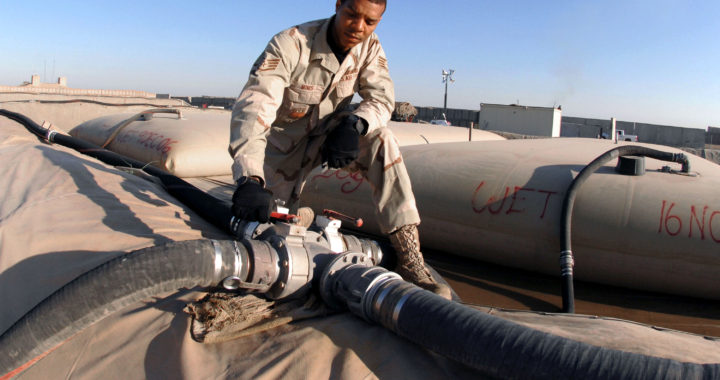Following a vote for independence on September 25, the region of Iraqi Kurdistan has erupted in a fresh wave of violence. In addition to the inevitable destruction and loss of life that will result, violence in and around the city of Kirkuk could have a huge impact on the world’s economy, most notably in the oil and gas industry.
The conflict may be a world away, but the discord in the Kurdish region of Iraq is going to show up at an oil pump near you.
A (Very) Basic History of Iraqi Kurdistan
There’s a whole lot of history between the Iraqi government and the Kurdish majority who calls northern Iraq their home. Without going into the nitty gritty of the region’s history, let’s sum up the situation thusly: on a good day, the oil-rich region of Iraqi Kurdistan is ruled over by a joint government. On one side stand the central Iraq government in Baghdad; on the other side is the Kurdistan Regional Government (KRG) based in Kirkuk, a city outside the confines of Iraqi Kurdistan.
In the last few years, the region has exploded into chaos with the arrival of the Islamic State, aka ISIS. When ISIS swept through northern Iraq in 2014, the Iraqi army disintegrated in their wake, leaving the region largely undefended and in flux.
What’s Happening in Kirkuk?
Amid the turmoil, the Kurdish majority which calls Iraqi Kurdistan home have marshaled support for secession from the Iraqi government. On September 25, a regional vote on independence was held. The result, according to the KRG, showed the vast majority in Iraqi Kurdistan supporting independence from Baghdad’s central government.
Perhaps unsurprisingly, the Iraqi government called the vote unconstitutional. The KRG refuted Iraq’s stance and moved to take control of the region. The Iraqi parliament responded by claiming that the KRG was moving toward war.
Though Kirkuk lies outside of Iraqi-controlled Kurdistan, the city has become the front line for the growing conflagration between Iraq and Kurdistan. While Iraqi Prime Minister Haider al-Abadi has stated opposition to the violence, the Iraqi central government has also deployed troops to Kirkuk to put an end to the attempted secession.
The Impact on the International Oil and Gas Industry
As Baghdad authorities and the KRG vie for control of the robust oil fields of northern Iraq, doubt over the worldwide supply of crude has already caused a one percent increase in the price of oil. Though petroleum continues to flow from the fields surrounding Kirkuk, international concern remains. In fact, hundreds of thousands of barrels have been lost thanks to the conflict.
At the moment, the US government has gone to great lengths to stay out of the conflict. However, as the region continues to endure combat between the KRG and Iraq, there’s no telling how much destruction might be wrought on the terrain. Disruption in the region may very well lead to a spike in oil prices in the coming weeks.
Several other factors — like a drastic increase in US production — could play into the overall gain in crude oil prices, but instability in Iraqi Kurdistan will certainly remain a crucial determining factor on oil and gas in the weeks to come.

